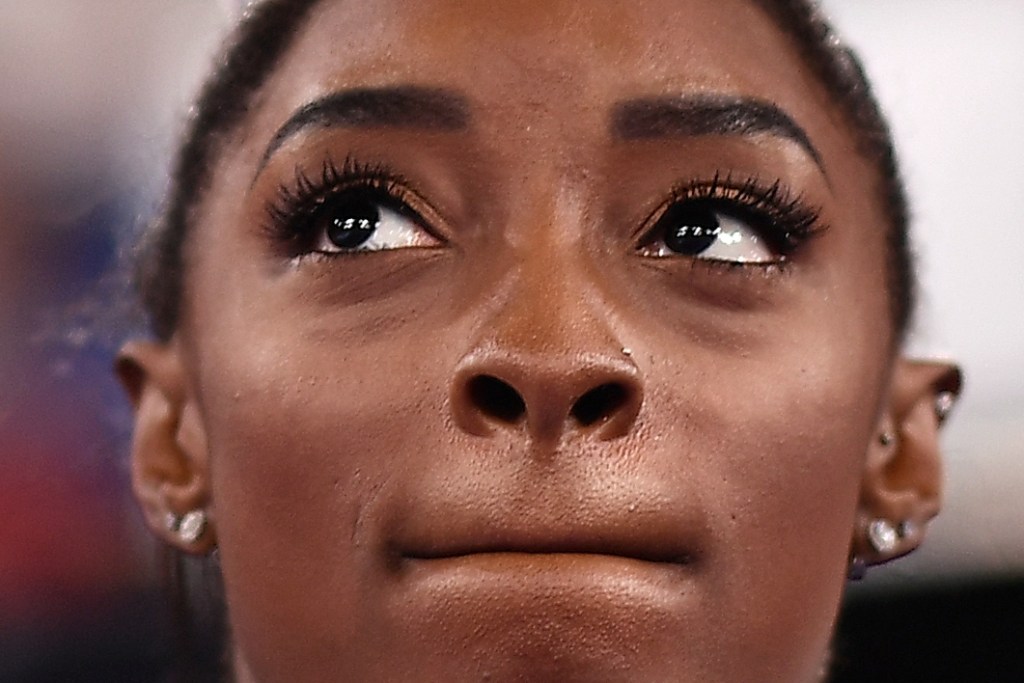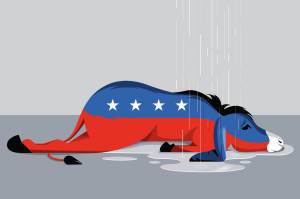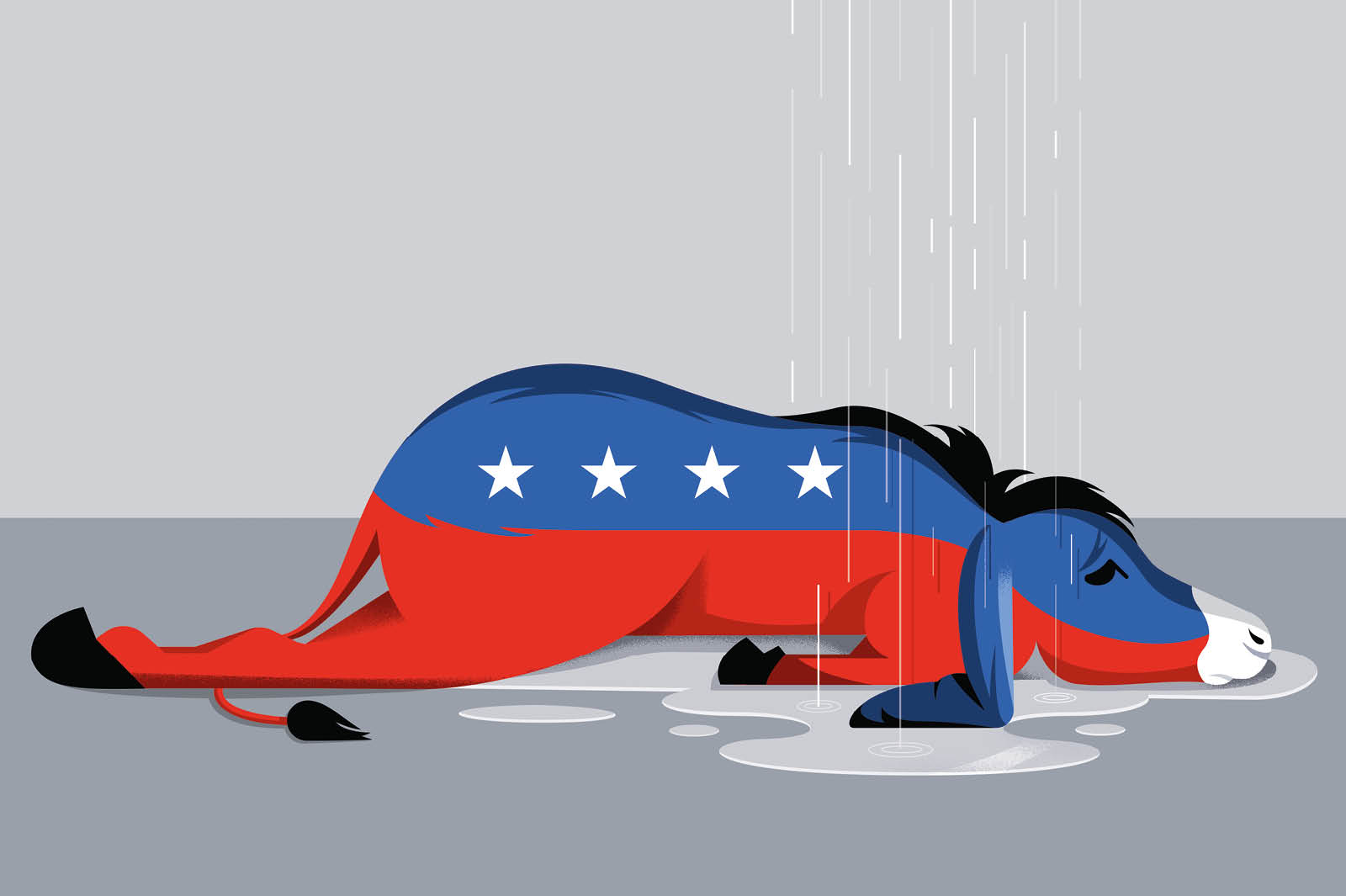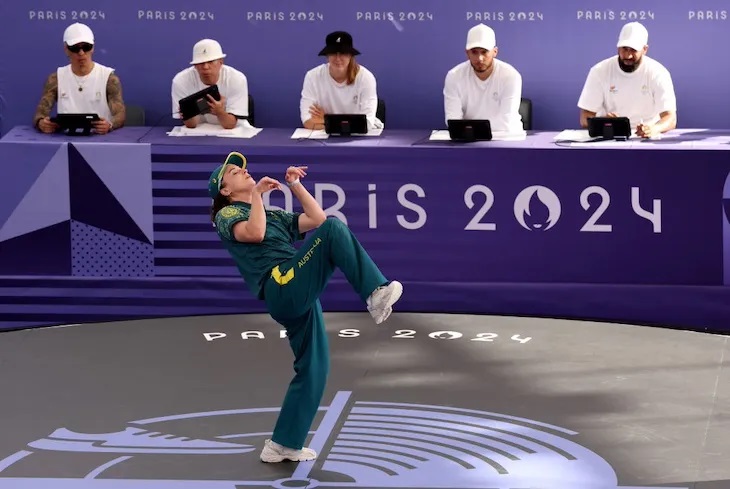An opinion columnist should have some self-awareness in life. When your job is to sit behind a laptop droning on about politics, for example, you should be very careful before casting aspersions on the mental and physical performance of one of the most decorated Olympians of all time.
Simone Biles, who transcended poverty and abuse to become in all likelihood the greatest gymnast ever, with 19 gold medals in World Championships, clearly has nothing to prove when it comes to mental toughness and physical excellence. You can’t hurl yourself head over heels, through the stratosphere, in front of millions of viewers, without both — never mind doing it better than anybody else.
So, if she thought she had to pull out of the all-round gymnastics final at the Tokyo Olympics, I am sure she did. It is a terrible shame, but such is life. I hope Ms Biles feels happier and healthier soon.
The problem is not her actions but the response to them. Commentators have treated Biles’s departure from the competition not as a sad event deserving of our empathy but as something to be celebrated. The Week’s culture critic writes:
‘The strength required to [pull out] — when you know the coming backlash, the disappointed fans and the let-down teammates — is enormous, unfathomable.’
To which the question is, what backlash? Biles has received praise and support from USA Gymnastics, the International Olympic Committee, fellow Olympians, the mainstream media and so on. Criticism has largely been confined to Piers Morgan and Charlie Kirk — whose disdain for Biles’s actions earned them a tidal wave of online abuse. Her support has been almost universal.
The sad fact is that commentators are less interested in Biles’s emotional health than in deploying it for political purposes. A commentator in the Guardian suggests that this might rank as her ‘greatest achievement of all’ — a baffling way to minimize the accomplishments of one of the most gifted athletes of our times. Demeaning someone’s life work in their defense seems odd until you grasp that many of Biles’s advocates are not especially interested in sport. For example, the writer asserts:
‘Now, some might say she betrayed her teammates. Betrayed her country. I say: good for her. I think back to E.M. Forster’s great essay What I Believe, in which he writes: “I hate the idea of causes, and if I had to choose between betraying my country and betraying my friend I hope I should have the guts to betray my country.”’
No one is saying that Biles betrayed her country. But the sensible response to such an allegation would be ‘no, she didn’t’ rather than ‘yes — and it was good!’ The writer is attempting to co-opt Biles into a narrative where black athletes are especially put upon by American society, as if an athlete such as Michael Phelps, who has expressed his empathy with Biles, did not face the same pressure to succeed.
It was in fact the liberal media that burdened Biles, Naomi Osaka and others with the obligation to represent ‘black girl magic’ and which now blames heightened expectations for their poor results. The same thing was true of the Euros. Left-wing journalists and politicians burdened the English ‘football’ team with the need to represent an ideal image of multicultural Britain and then met defeat with an extraordinary moral panic over very marginal abuse on social media.
Journalists are fetishizing athletes as martyrs. If that sounds hyperbolic then consider a new essay in Elle, which sobs, in all sincerity, that Biles and Osaka are ‘living women with interior lives so rich, we would weep if we knew them’. Get a grip, my God. The writer explains that Olympic athletes ‘owe us nothing’. Actually, they owe their fans their best because, if nothing else, their fans are paying their mortgages. If they have given their best and have nothing else to give, as Biles has done, that is enough — but it is silly to suggest that athletes have no professional responsibilities.
The Elle essay goes on to criticize the tendency to ‘adopt certain athletes as our figureheads and our trophies’. Ironically, this is exactly what is being done to Biles, Osaka and others, except that instead of being adopted as figureheads of athletic excellence, they are being adopted as figureheads of ‘mental health’ — yanked from their individual circumstances and laden with modish clichés about pressure and self care.
They are being turned from representatives of elite sportsmanship into totems of emotional turmoil. In more sensible times, the struggles of elite sports would be treated as sad, sympathetic and worthy of painstaking amelioration — perhaps by encouraging athletes to stay off social media. Idealization and politicization seem unlikely to help anyone.
This article was originally published on The Spectator’s UK website.

























